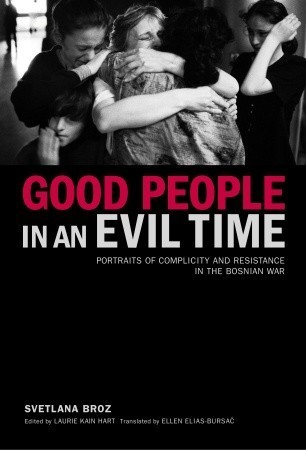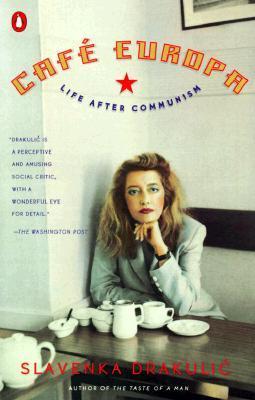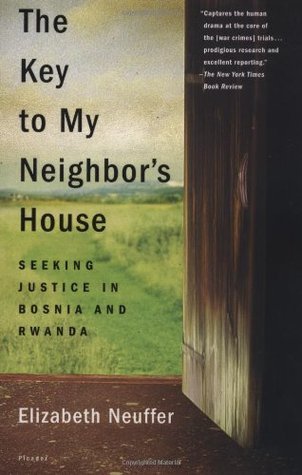
Good People in an Evil Time: Portraits of Complicity and Resistance in the Bosnian War
Book Description
Amidst the chaos of war, courage emerges from the most unexpected places. "Good People in an Evil Time" unveils the gripping stories of those who dared to defy the tide of hatred during the Bosnian War. Through intimate portraits, Svetlana Broz reveals the resilience of ordinary individuals who chose compassion over complicity, risking everything to protect their neighbors from violence. Each narrative starkly contrasts the shadows of moral collapse with the illuminating power of resistance. In a world where evil can seem overwhelming, what does it truly mean to stand up for humanity?
Quick Book Summary
"Good People in an Evil Time" by Svetlana Broz presents powerful oral histories from the Bosnian War, focusing on acts of compassion and courage shown by ordinary citizens under extraordinary duress. Rather than recounting the war’s politics or military developments, the book illuminates intimate, personal stories of moral resistance and self-sacrifice. Broz, through interviews with survivors, captures moments of quiet heroism—neighbors, friends, and even strangers risking their lives to save those targeted by violence and ethnic hatred. Their testimonies reveal both the darkness of complicity and the transformative power of goodness. Ultimately, the book challenges readers to consider the meaning of moral choice, demonstrating that humanity can persist even amidst atrocity.
Summary of Key Ideas
Table of Contents
Acts of Moral Courage Amidst War
At the heart of "Good People in an Evil Time" are personal stories from the Bosnian War, told through candid interviews. Svetlana Broz foregrounds not the broad sweep of history, but the individual acts of people who chose to resist cycles of ethnic hatred and violence. Whether sheltering a neighbor from persecution or helping a stranger escape a checkpoint, these choices often meant risking one’s life. Broz’s approach is deeply empathetic, revealing the emotional and ethical turmoil faced by those who resisted the prevailing tide of cruelty.
The Complexity of Complicity and Resistance
The book intricately explores the nature of complicity alongside resistance. Some individuals, out of fear or self-preservation, enabled or ignored acts of cruelty, while others felt compelled to intervene despite grave risks. Broz examines the pressures—social, familial, and political—that shaped these choices, allowing readers to grasp the complexity of human behavior in wartime. She does not demonize those who faltered, but instead paints a nuanced picture of the spectrum between good and evil, where choices are rarely clear-cut.
The Persistence of Humanity Under Duress
Stories of compassion and solidarity form the emotional core of the collection. Amid the brutality of war, simple acts—sharing food, offering shelter, or speaking a word of comfort—become profound expressions of humanity. Broz shows how these moments fostered communities of trust across ethnic lines, challenging the top-down narratives of division. The testimonies underscore how everyday people, unrelated by blood or religion, could affirm each other’s dignity amidst systematic attempts to erase it.
The Dangers and Costs of Doing Good
Broz is keenly aware of the peril and cost involved in resisting evil. Many who acted courageously suffered consequences: ostracism, imprisonment, assault, even loss of life. The book honors their courage without romanticizing it, showing that goodness often comes with heavy burdens. Yet these stories highlight the ripple effect of small acts—how one person’s kindness could inspire others, sometimes saving entire families and shaping destinies.
The Lasting Impact of Small Acts of Kindness
Finally, the book asks enduring ethical questions: What does it take to stand up for others when most remain silent? How can ordinary people enact extraordinary morality? Through these oral histories, Broz invites reflection on the persistence of decency, even in the darkest times. Her work affirms the lasting legacy of compassion and the hope that, amid evil, good people will still find the courage to act.
Download This Summary
Get a free PDF of this summary instantly — no email required.





